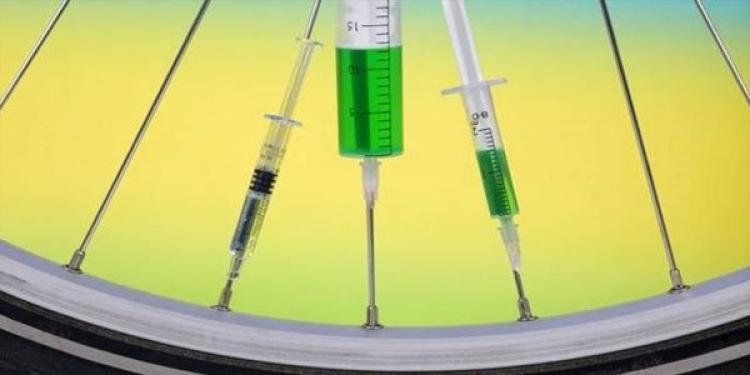Sporting Drug Scandals Force Cycling To Take A Brake.
Posted: January 20, 2016
Updated: June 5, 2017

With so many sporting drug scandals to its name perhaps it’s not surprising that the Cycling world is attempting to divert the attention of the media with scare stories about new brakes, but instead of leaping about before the press with predictions of horror like the angel of death doing a New Zealand All Black haka dance on crack, perhaps cycling should face the fact that their sport is based on cheating and just learn to live with it.
Cycling Diversion
• New brakes are news
• Old drugs are not
• Cheating as usual
Even if you regularly bet on sports in Sweden the chances are that cycling isn’t on your coupon at the best of times. Sure, they’ve a few international names in the peloton, Thomas Lovkvist, Gustav Larsson, and Emma Johansson to name but three, however even the most ardent of Swedish nationalists might have a tough time betting their hard earned money on a sport which has long been the poster-boy for sporting drug scandals.
Cycling is, of course, claiming to be cleaning up its act, but since its “act” has basically involved competitors taking more drugs than Rush Limbaugh on a bender, that’s not saying much. After the revelations of cheating on a mammoth scale by Lance Armstrong, you would think that there would be a massive crackdown to avoid the negative publicity of yet more sporting drug scandals, but no, they’re still at it.

A report last year from the Cycling Independent Reform Commission informed us that far from getting clean, they’ve just become more sneaky, and that in one form or another 90% of the peloton is still doping today. Worse still it contended that former UCI presidents Verbruggen and McQuaid were pretty much responsible for creating a doping culture in the sport, running “autocratic” regimes that lacked transparency, a regard for the UCI’s own rules, and any notable ethics whatsoever.
New Brakes, Old Habits
Of course if you’re Swedish gambling laws would be tightened, investigations carried out, a root-and-branch reform would root out the cheats, I’m afraid you’re wholly wrong. Whilst cheating in cycling has slipped from the realm of team-wide-team-controlled doping, it has far from disappeared, going underground (as it were) and becoming a far more individual pursuit. Officially sanctioned cheating merely replaced with unofficially sanctioned cheating.
The fact we’re all aware of this has meant cycling as a sport is desperate to shift attention from the underlying nature of this ridiculous farce, and that means, as the Tour Down Under kicks off the season, they’re frantically attempting to distract the press from the dirty underside of this (frankly) ridiculous sport, that should either give up and go home, or just legalize drugs for everyone and have done with it. They won’t but at least there would be no more sporting drug scandals in cycling if they did.
This week’s “Hide The Fact We’re All On Drugs Behind This” news story from cycling is about brakes and how the introduction of disc brakes to the cycling world is controversial.

It really isn’t, but they’re making every attempt to pretend it is, with big names like Chris Froome lining up to share his concerns about “safety” raised by this new technology. You’re racing light-weight unstable two-wheeled man-powered vehicles on public road surfaces surrounded in a tight group by competitive people on drugs. You want safe, Chris? Take up knitting.
Sporting Drug Scandals Could Be Avoided By Sensible Legalization
Apparently the difference between the old style caliper system and disc brakes is one of response, the speed with which one is slowed is significantly different, and in a packed peloton, Froom claims, that difference would “increase the dangers”. He’d like to see either everyone have calipers or everyone have discs but not both, something that might be a little problematic since the teams all use different manufacturers and not all of them are on the disc-brake-bandwagon as yet.
It is, of course, entirely laughable that cycling stars are willing to stand up for uniformity of equipment amongst them whilst at the same time continue to compete in a sport they know, because of the many sporting drug scandals associated with it, to be inherently flawed and unfair. If they had any sense at all they’d extend this attitude to not just brakes but everything about cycling, including the drug abuse. Don’t continue to fight an unwinnable war against drugs cheats, just stop it being cheating.
Cycling would, should it take this radical step to avoid further sporting drug scandals within its ranks, only rise in popularity. It’s honesty about the nature of human competitive spirit’s lack of boundaries might even entice people to once again wager on it at sites like ComeOn! Sportsbook, not to mention that I for one am gambling news of drugs being legal in cycling would lead to other sports following their lead and making the world a slightly more honest place……..Seb Coe? Are you listening?












